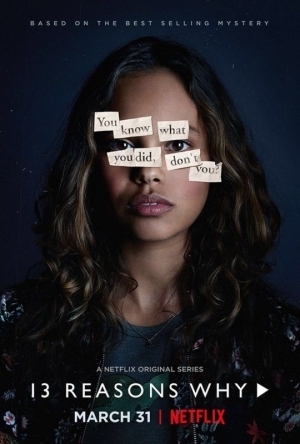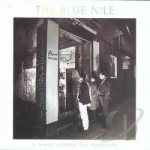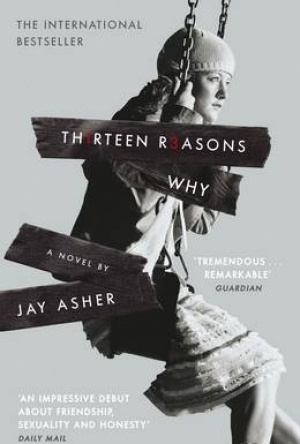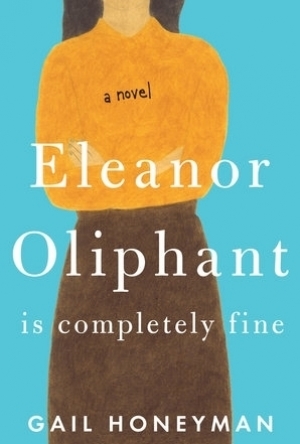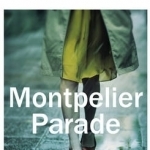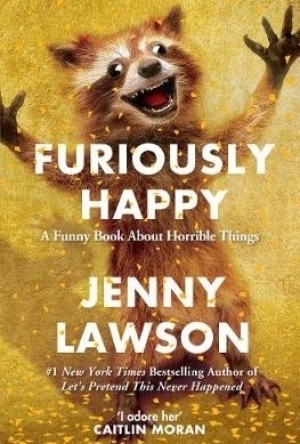Search
Search results
tonidavis (353 KP) rated 13 Reasons Why - Season 1 in TV
Jul 11, 2017
It not afraid to go there (1 more)
Clay
There are better YA book about suicded i would of prefered be made (1 more)
Triggery for self harmers and those who attempted suicde
There are better adaptions of suicide premise in YA
From the age off 11 i self harmed at 23 that changed into worse depression and suicide attempts. At the time of these events i never really heard of people my age doing that so i think that seeing this series could of helped in some way not feeling alone. I did read the book 10 years ago and as it wasn't visually as graphic as the TV series it made me release other people go through bad stuff and get into suicidal places. My problem with the show isn't the suicide it about the blame she forces onto everyone else. For me when i made the transition from self harming and depression to truly ending it other people didn't come into play, The suicide was merely the only option to my own though no matter what had or happened in the past nobody else should be taken down for it. I know know that it will always affect others in ways you cant know but at the time I never saw it. So for me books about suicide in YA fictional field that handle it better are books like All The Bright Places are better at exploring this premise and i look forward to the film as its been optioned.
As for the Tv version of this show I loved Clay and the boy who played him the acting was superb and I enjoyed the series however for people who still self harm or are suicidal this show is very very triggory.
As for the Tv version of this show I loved Clay and the boy who played him the acting was superb and I enjoyed the series however for people who still self harm or are suicidal this show is very very triggory.
Rachel P (2 KP) rated Colorless Tsukuru Tazaki and His Years of Pilgrimage in Books
Jan 4, 2018
The novel is written in third person and follows Tsukuru as he does on a quest to find out why his friends alienated him years prior. The novel switches between present day, with Tsukuru trying to live a normal, happy live, and the past, which describes Tsukuru's depression and how he was able to overcome suicidal thoughts. Tsukuru has had many friends leave his life without explanation, and he has come to think of himself as "colorless", having nothing to offer anyone.
There are so many thought-provoking situations in this novel that I almost feel like I should go back and re-read it to fully understand everything that happened. I was left questioning several things from the novel, which is the reason for 4 stars. The reading, insight into the characters, etc was what kept me entertained.
There are so many thought-provoking situations in this novel that I almost feel like I should go back and re-read it to fully understand everything that happened. I was left questioning several things from the novel, which is the reason for 4 stars. The reading, insight into the characters, etc was what kept me entertained.
Shirley Manson recommended Walk Across the Rooftops by The Blue Nile in Music (curated)
Hazel (1853 KP) rated Thirteen Reasons Why in Books
Dec 7, 2018
<i>This eBook was provided by the publisher via NetGalley in exchange for an honest review </i>
Recently filmed as a thirteen-part Netflix drama executively produced by Selena Gomez, <i>Thirteen Reasons Why</i> was the first novel by the award-winning author, Jay Asher. It is the type of book readers will either love or hate, but it should definitely come with a warning. This story is NOT an accurate representation of depression and suicide.
Yes, suicide. A teenaged girl has committed suicide, shocking everyone who knew her. No one could understand why, but thirteen people are going to find out. Clay Jensen is the ninth person to receive a box of thirteen audiotapes from Hannah Baker. However, Hannah died two weeks ago. As she premeditated taking her life, Hannah recorded thirteen stories involving people from her school that caused her to snowball into deep depression and despair. Desperate to find out why his name features in Hannah’s story, Clay begins listening to the tapes in order, putting together the events that led to Hannah’s death.
What follows is a heart-breaking story showing the impact individuals have on other people’s lives, often without realising it. In some cases, the characters only played a minor role in Hannah’s life, whereas others caused significant damage. The saddest thing is, Clay could have helped Hannah, but she had pushed him away.
At times, Hannah seemed like the horrible person, calling all these people out on petty little things, but these things, along with the more horrible ones, all built up to create a life that did not feel worth living. It is eye opening how much a small action, comment or rumour can so drastically alter someone’s future.
Bearing in mind that depression affects everyone differently and has numerous causes, some readers may feel disgusted at Hannah’s extreme action, but this is the fault of the author. Jay Asher fails to completely describe the emotional torment that Hannah felt, and only someone who may have been through a similar situation, or worse, will fully be able to understand the impact everything has had on her mental health.
As Hannah beleaguers her listeners, the thirteen people start to feel like the victims rather than the “attackers”, which is most probably not what the author was intending. Now, these people will have to live their lives believing they caused a girl to commit suicide when really they were only 1/13th of the reason. Although, before criticising this novel, keep in mind it is a work of fiction.
What is most painful about <i>Thirteen Reasons Why</i>, is not Hannah’s plight, but the reaction Clay has to hearing Hannah’s story. Unlike the other people Hannah accuses, Clay is not one of her antagonists; all Hannah wants to do is to say sorry.
It is up to the reader to judge whether <i>Thirteen Reasons Why</i> is worthy of praise or not. Those without an understanding of depression may dislike it on account of misunderstanding Hannah’s reasons, whereas others may feel insulted that she killed herself over things that could have been eased had she told someone. Personally, I understand where Hannah is coming from, and although I would not go to the extremes Hannah did, I do not think she was selfish or stupid or any other insult that may befall her.
The reason I give this book a good rating lies in the quality of writing. Asher seamlessly alternates between two narratives – Hannah’s story and Clay’s reaction and reflection. Although the author may not have clearly expressed Hannah’s emotions, he successful emphasises the grief and despair Clay feels listening to the cassettes. My main concern is that <i>Thirteen Reasons Why</i> will only be short lived. Audiotapes were already obsolete when the book was published, but soon will there be any new readers who know what a tape is?
Recently filmed as a thirteen-part Netflix drama executively produced by Selena Gomez, <i>Thirteen Reasons Why</i> was the first novel by the award-winning author, Jay Asher. It is the type of book readers will either love or hate, but it should definitely come with a warning. This story is NOT an accurate representation of depression and suicide.
Yes, suicide. A teenaged girl has committed suicide, shocking everyone who knew her. No one could understand why, but thirteen people are going to find out. Clay Jensen is the ninth person to receive a box of thirteen audiotapes from Hannah Baker. However, Hannah died two weeks ago. As she premeditated taking her life, Hannah recorded thirteen stories involving people from her school that caused her to snowball into deep depression and despair. Desperate to find out why his name features in Hannah’s story, Clay begins listening to the tapes in order, putting together the events that led to Hannah’s death.
What follows is a heart-breaking story showing the impact individuals have on other people’s lives, often without realising it. In some cases, the characters only played a minor role in Hannah’s life, whereas others caused significant damage. The saddest thing is, Clay could have helped Hannah, but she had pushed him away.
At times, Hannah seemed like the horrible person, calling all these people out on petty little things, but these things, along with the more horrible ones, all built up to create a life that did not feel worth living. It is eye opening how much a small action, comment or rumour can so drastically alter someone’s future.
Bearing in mind that depression affects everyone differently and has numerous causes, some readers may feel disgusted at Hannah’s extreme action, but this is the fault of the author. Jay Asher fails to completely describe the emotional torment that Hannah felt, and only someone who may have been through a similar situation, or worse, will fully be able to understand the impact everything has had on her mental health.
As Hannah beleaguers her listeners, the thirteen people start to feel like the victims rather than the “attackers”, which is most probably not what the author was intending. Now, these people will have to live their lives believing they caused a girl to commit suicide when really they were only 1/13th of the reason. Although, before criticising this novel, keep in mind it is a work of fiction.
What is most painful about <i>Thirteen Reasons Why</i>, is not Hannah’s plight, but the reaction Clay has to hearing Hannah’s story. Unlike the other people Hannah accuses, Clay is not one of her antagonists; all Hannah wants to do is to say sorry.
It is up to the reader to judge whether <i>Thirteen Reasons Why</i> is worthy of praise or not. Those without an understanding of depression may dislike it on account of misunderstanding Hannah’s reasons, whereas others may feel insulted that she killed herself over things that could have been eased had she told someone. Personally, I understand where Hannah is coming from, and although I would not go to the extremes Hannah did, I do not think she was selfish or stupid or any other insult that may befall her.
The reason I give this book a good rating lies in the quality of writing. Asher seamlessly alternates between two narratives – Hannah’s story and Clay’s reaction and reflection. Although the author may not have clearly expressed Hannah’s emotions, he successful emphasises the grief and despair Clay feels listening to the cassettes. My main concern is that <i>Thirteen Reasons Why</i> will only be short lived. Audiotapes were already obsolete when the book was published, but soon will there be any new readers who know what a tape is?
Suswatibasu (1701 KP) rated Eleanor Oliphant Is Completely Fine in Books
Sep 19, 2017
Completely different to what I expected, witty but rather sad
I've heard that this book is a comedy because of the narrator's frank outlook on life, however this is definitely not the case.
Eleanor Oliphant is socially awkward, very blunt but well spoken and seems to have a few dysfunctional issues. The author then explores why this must be the case, especially her relationship with her past and her controlling mother. The novel is about trauma and mental health, and how depression can cause people to act out in unusual ways. It is funny at times when she has no clue about social conventions and how much emphasis is put on the mundane.
It's important for showing that one isn't 'mad' for being different, merely misguided and that by addressing problems head on and getting the right support Eleanor Oliphant is actually completely fine.
Eleanor Oliphant is socially awkward, very blunt but well spoken and seems to have a few dysfunctional issues. The author then explores why this must be the case, especially her relationship with her past and her controlling mother. The novel is about trauma and mental health, and how depression can cause people to act out in unusual ways. It is funny at times when she has no clue about social conventions and how much emphasis is put on the mundane.
It's important for showing that one isn't 'mad' for being different, merely misguided and that by addressing problems head on and getting the right support Eleanor Oliphant is actually completely fine.
Whatchareadin (174 KP) rated Face the Winter Naked in Books
May 10, 2018
It took me about a month to finish this book which is rare for me. But I commit myself to finish once I start. So Daniel wakes up one morning and leaves his family during the Great Depression to go and find work and handle some unfinished business. The only problem is his family has no idea. His wife is left with three kids and a newborn her husband doen't know about. While he travels the country looking for work to take care of his family and deals with the nughtmares of the war, his wife has her own nightmares to deal with and no idea where to find her husband. This book is full of interesting "adventures" for all parties involved. If you can make it through the first half of the book with the slow start you won't put it down after that.
Nicole Hadley (380 KP) rated Hand Made: The Modern Woman's Guide to Made-from-Scratch Living in Books
Jun 18, 2018
Hand Made: The Modern Woman's Guide to Made-from-Scratch Living by Melissa K. Norris is a beautiful book. The book is part memoir and part cook book. The book looks at ways to make things homemade and the wisdom of the Depression era that can help make recipes simpler.
I enjoyed this book because the author shares recipes that had been handed down to her. The recipes were easy and adaptable. There were some good tips on growing herbs and suggestions for kitchen organization. The book also contains recipes for making soap and candles.
I highly recommend this book for those that enjoy making things from scratch or want to learn to do it more often. Melissa Norris includes personal stories and some scripture in some parts of the book that I enjoyed reading as well.
I received this book from Harvest House Publishers via NetGalley.
I enjoyed this book because the author shares recipes that had been handed down to her. The recipes were easy and adaptable. There were some good tips on growing herbs and suggestions for kitchen organization. The book also contains recipes for making soap and candles.
I highly recommend this book for those that enjoy making things from scratch or want to learn to do it more often. Melissa Norris includes personal stories and some scripture in some parts of the book that I enjoyed reading as well.
I received this book from Harvest House Publishers via NetGalley.
Hazel (1853 KP) rated Montpelier Parade in Books
May 24, 2017
Sylvia Plath-esque
I received this book for free through Goodreads First Reads.
Set in the not-so-distant-past in Dublin, Ireland lives Sonny, a schoolboy with not much hope of succeeding in life. Living on the poverty line, Sonny has no choice but to work at a butcher’s shop after school, and with his gambling father, a builder, at the weekend. On one such occasion, whilst working on a posh house on Montpelier Parade, Sonny meets the enigmatic Vera, whose beauty leaves him speechless. It only takes another encounter, and Sonny is infatuated with this elusive lady.
Montpelier Parade is a melancholy love story, describing the dangerous relationship between Sonny and Vera. Not only is it wrong for schoolchild and adult to have such an intimate connection, Sonny finds himself powerless to deal with Vera’s depression. Vera’s Sylvia Plath-esque demeanour results in events that go above and beyond what an adolescent boy ought to be dealing with – especially as he has his own problems, too.
Karl Geary has written this novel in the second person, placing the reader directly into Sonny’s position. “You say,” “She turned and looked at you.” – we, as the reader, become Sonny. This makes it easier to imagine the hardships he is facing at school, at home, and with Vera. We imagine ourselves in his position, thus making everything feel so real.
Montpelier Parade is not an easy book to read. Depression and suicide are very delicate topics to deal with. Combine that with underage sexual relationships with an adult, and you have got a particularly uncomfortable journey ahead. Then, to top it all off, the narrative is riddled with foul language.
A comparison with wealth and poverty, life and death, and love, Montpelier Parade will attract many readers. Sadly, the story was a bit too crude for myself to enjoy. That said, I can understand why many will enjoy it, or even relate to it, however be aware, it is quite a serious, dark story.
Set in the not-so-distant-past in Dublin, Ireland lives Sonny, a schoolboy with not much hope of succeeding in life. Living on the poverty line, Sonny has no choice but to work at a butcher’s shop after school, and with his gambling father, a builder, at the weekend. On one such occasion, whilst working on a posh house on Montpelier Parade, Sonny meets the enigmatic Vera, whose beauty leaves him speechless. It only takes another encounter, and Sonny is infatuated with this elusive lady.
Montpelier Parade is a melancholy love story, describing the dangerous relationship between Sonny and Vera. Not only is it wrong for schoolchild and adult to have such an intimate connection, Sonny finds himself powerless to deal with Vera’s depression. Vera’s Sylvia Plath-esque demeanour results in events that go above and beyond what an adolescent boy ought to be dealing with – especially as he has his own problems, too.
Karl Geary has written this novel in the second person, placing the reader directly into Sonny’s position. “You say,” “She turned and looked at you.” – we, as the reader, become Sonny. This makes it easier to imagine the hardships he is facing at school, at home, and with Vera. We imagine ourselves in his position, thus making everything feel so real.
Montpelier Parade is not an easy book to read. Depression and suicide are very delicate topics to deal with. Combine that with underage sexual relationships with an adult, and you have got a particularly uncomfortable journey ahead. Then, to top it all off, the narrative is riddled with foul language.
A comparison with wealth and poverty, life and death, and love, Montpelier Parade will attract many readers. Sadly, the story was a bit too crude for myself to enjoy. That said, I can understand why many will enjoy it, or even relate to it, however be aware, it is quite a serious, dark story.
Goddess in the Stacks (553 KP) rated Furiously Happy in Books
Jan 24, 2018
Made me almost fall off the bed giggling (2 more)
Hilarious descriptions about bizarre situations
Revealing what's going on in her head lets other people know they're not alone
Hysterically funny
How do you even begin to explain a Jenny Lawson book? Known as The Bloggess on the internet, Lawson is one of the most laugh-out-loud, hysterically funny, off-the-wall-crazy-pants writers I've ever come across. From her antics with taxidermied animals to the bizarre arguments she has with her husband to the weird tangents her brain goes on, Lawson is one of the most entertaining people on the internet. In Furiously Happy, she explores her lifelong fight with mental illness, from depression to anxiety to a number of manias, and she does so in a lovely, non-judgmental way. She does get serious - she talks about her "folder of 24" - 24 letters from suicidal people telling her that she, and the community she's built, are the reason they're still here. Lawson tackles the topic of depression head on, and by writing down the bizarre things that go through her head, lets people know THEY'RE NOT ALONE, and that's incredibly important.
As the subtitle of the book says, it might be a book about a serious topic, but oh. my. is it funny. Between sneaking a taxidermied ecstatically happy raccoon into view of her husband's video conferences, and trying to snuggle koalas in Australia while dressed in a full-body koala costume, Lawson also talks about waking up in the middle of the night thinking her arms have fallen off, and being stalked by carnivorous swans. Lawson's blog is hilarious, and this book is one of the most insanely funny things I've ever read, and now I have to track down her other two books. (Let's Pretend This Never Happened and You Are Here)
You can find all my reviews at http://goddessinthestacks.wordpress.com
As the subtitle of the book says, it might be a book about a serious topic, but oh. my. is it funny. Between sneaking a taxidermied ecstatically happy raccoon into view of her husband's video conferences, and trying to snuggle koalas in Australia while dressed in a full-body koala costume, Lawson also talks about waking up in the middle of the night thinking her arms have fallen off, and being stalked by carnivorous swans. Lawson's blog is hilarious, and this book is one of the most insanely funny things I've ever read, and now I have to track down her other two books. (Let's Pretend This Never Happened and You Are Here)
You can find all my reviews at http://goddessinthestacks.wordpress.com
Hazel (1853 KP) rated Montpelier Parade in Books
Dec 7, 2018
<i>I received this book for free through Goodreads First Reads.</i>
Set in the not-so-distant-past in Dublin, Ireland lives Sonny, a schoolboy with not much hope of succeeding in life. Living on the poverty line, Sonny has no choice but to work at a butcher’s shop after school, and with his gambling father, a builder, at the weekend. On one such occasion, whilst working on a posh house on Montpelier Parade, Sonny meets the enigmatic Vera, whose beauty leaves him speechless. It only takes another encounter, and Sonny is infatuated with this elusive lady.
<i>Montpelier Parade</i> is a melancholy love story, describing the dangerous relationship between Sonny and Vera. Not only is it wrong for schoolchild and adult to have such an intimate connection, Sonny finds himself powerless to deal with Vera’s depression. Vera’s Sylvia Plath-esque demeanor results in events that go above and beyond what an adolescent boy ought to be dealing with – especially as he has his own problems, too.
Karl Geary has written this novel in the second person, placing the reader directly into Sonny’s position. “You say,” “She turned and looked at you.” – we, as the reader, become Sonny. This makes it easier to imagine the hardships he is facing at school, at home, and with Vera. We imagine ourselves in his position, thus making everything feel so real.
<i>Montpelier Parade</i> is not an easy book to read. Depression and suicide are very delicate topics to deal with. Combine that with underage sexual relationships with an adult, and you have got a particularly uncomfortable journey ahead. Then, to top it all off, the narrative is riddled with foul language.
A comparison with wealth and poverty, life and death, and love, <i>Montpelier Parade</i> will attract many readers. Sadly, the story was a bit too crude for myself to enjoy. That said, I can understand why many will enjoy it, or even relate to it, however be aware, it is quite a serious, dark story.
Set in the not-so-distant-past in Dublin, Ireland lives Sonny, a schoolboy with not much hope of succeeding in life. Living on the poverty line, Sonny has no choice but to work at a butcher’s shop after school, and with his gambling father, a builder, at the weekend. On one such occasion, whilst working on a posh house on Montpelier Parade, Sonny meets the enigmatic Vera, whose beauty leaves him speechless. It only takes another encounter, and Sonny is infatuated with this elusive lady.
<i>Montpelier Parade</i> is a melancholy love story, describing the dangerous relationship between Sonny and Vera. Not only is it wrong for schoolchild and adult to have such an intimate connection, Sonny finds himself powerless to deal with Vera’s depression. Vera’s Sylvia Plath-esque demeanor results in events that go above and beyond what an adolescent boy ought to be dealing with – especially as he has his own problems, too.
Karl Geary has written this novel in the second person, placing the reader directly into Sonny’s position. “You say,” “She turned and looked at you.” – we, as the reader, become Sonny. This makes it easier to imagine the hardships he is facing at school, at home, and with Vera. We imagine ourselves in his position, thus making everything feel so real.
<i>Montpelier Parade</i> is not an easy book to read. Depression and suicide are very delicate topics to deal with. Combine that with underage sexual relationships with an adult, and you have got a particularly uncomfortable journey ahead. Then, to top it all off, the narrative is riddled with foul language.
A comparison with wealth and poverty, life and death, and love, <i>Montpelier Parade</i> will attract many readers. Sadly, the story was a bit too crude for myself to enjoy. That said, I can understand why many will enjoy it, or even relate to it, however be aware, it is quite a serious, dark story.
